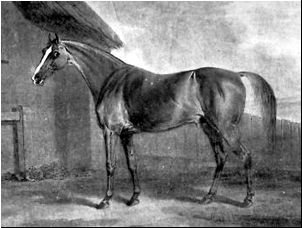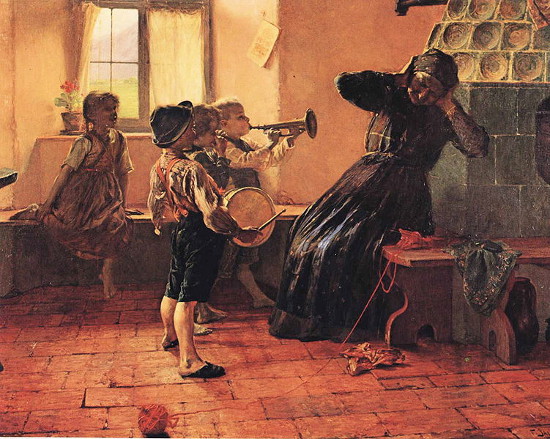An omnipotent god can create a being whose acts are known only to itself.
An omniscient god cannot do this.
It would appear, then, that no god can be both omnipotent and omniscient.
(From Richard R. La Croix.)
An omnipotent god can create a being whose acts are known only to itself.
An omniscient god cannot do this.
It would appear, then, that no god can be both omnipotent and omniscient.
(From Richard R. La Croix.)
On Sept. 18, 1989, a frightened teenage girl walked into William B. Jack Elementary School in Portland, Maine. “She just stopped at the counter,” teacher’s aide Judi Fox told the Houston Chronicle. “She walked in and signed a little bit.” Realizing that the girl was seeking help, Fox summoned a teacher who knew sign language and the two took her to a nearby school for the deaf.
Communicating in gestures and drawings, the deaf girl explained that she had been abducted about three years earlier, possibly from a foster home in California, and then moved several times. She believed she was 15 years old, and had been given the name Toby Cole by her captors, though authorities could find no missing-persons report that matched her case.
FBI agent Paul Cavanagh added, “From some of the drawings she was able to provide, it is believed that some of the people she was with since her abduction may have been tied to the occult.”
Unfortunately, no further clues to the girl’s identity were ever found, and she was able to provide no information leading to arrests. She was placed in a foster home, and the case remains unsolved.
On the same theme: In 2009 former Gallaudet University student Joseph Mesa Jr. was convicted of murdering two classmates. The jury rejected his claim that a pair of black hands had urged him on in sign language. Prosecutor Jeb Boasberg said, “An insanity defense doesn’t work if you’re not insane.”
UPDATE: There were further developments in the Toby Cole story, though they make the whole tale even stranger. Police and FBI investigators identified the woman as 27-year-old Margaret Louise Herget of Sandy, Ore. She had moved to Louisiana in August and then to Maine just a few days before turning up at the school. Police lieutenant Michael Bouchard told the Associated Press in October that Herget was hearing-impaired but not deaf and that authorities no longer believed that she had been abducted. But why she had concocted the story, so far as I can tell, is still a mystery. Thanks to everyone who wrote in about this.

Foaled in 1773, this thoroughbred racehorse bore the unlikely name of Potoooooooo.
How was it pronounced?
“Great good nature, without prudence, is a great misfortune.” — Benjamin Franklin

A globe-trotting man from St. Paul
Made a trip to Japan in the faul.
One thing he found out,
As he rambled about,
Was that Japanese ladies St. Taul.
A censor, whose name was Magee,
Suppressed the whole dictionaree;
When the public said, “No!”
He replied, “It must go!
It has alcohol in it, you see!”
There was a young man from the city,
Who met what he thought was a kitty;
He gave it a pat
And said, “Nice little cat!”
And they buried his clothes out of pity.
— Carolyn Wells’ Book of American Limericks, 1925

Arrange a deck of cards in alternating colors, black and red. Now cut the deck so that the bottom card of one pile is black and the other is red. Riffle-shuffle the two piles together again. Now remove cards from the top of the pack in pairs. How many of these pairs should we expect to contain cards of differing colors?
Surprisingly, all of them will. During the shuffle, suppose a black card falls first. It must be followed by either the next card in its own pile, which is red, or the first card from the other pile, which is also red. Either way, this first pair will contain one black card and one red card, and by the same principle so will each of the other 25 pairs produced by the shuffle. This effect was first identified by mathematician Norman Gilbreath in 1958.
Related: Arrange the deck in a repeating cycle of suits, such as spade-heart-club-diamond, spade-heart-club-diamond, etc. Ranks don’t matter. Now deal about half of this deck onto the table and riffle-shuffle the two halves back together. If you draw cards from the top in groups of four, you’ll find that each quartet contains one card of each suit.
See So Much for Entropy.

In July 1761 an illegal slave ship foundered near Tromelin, a speck of land 200 miles east of Madagascar. After six months on the island, the surviving gentlemen and sailors assembled a makeshift boat and departed, promising to return for the 60 slaves left on the island. They never did.
The slaves kept a fire going for 15 years while they struggled to survive on an island of barely 0.3 square miles. They fashioned houses from coral and sand, built a communal oven, and subsisted on turtles and seabirds.
“We have found evidence of where they lived and what they ate,” archaeologist Max Guérout told the Independent in 2007. “We have found copper cooking utensils, repaired, over and over again, which must originally have come from the wreck of the ship.”
Many of the castaways simply succumbed. At one point 18 left on a makeshift raft; it’s not known whether they reached land. In 1776 a French sailor was shipwrecked on the island, built a raft, and escaped to Mauritius with three men and three women. When a rescue ship arrived for the last seven castaways, they included a grandmother, her daughter, and an 8-month-old grandchild who had been born on the island.
The governor in Ile de France declared them free, since they had been bought illegally. He adopted the family of three and named the boy Jacques Moise. His surname is a French form of Moses — a baby rescued from water.

scrannel
adj. unmelodious
If an opinion contrary to your own makes you angry, that is a sign that you are subconsciously aware of having no good reason for thinking as you do. If some one maintains that two and two are five, or that Iceland is on the equator, you feel pity rather than anger, unless you know so little of arithmetic or geography that his opinion shakes your own contrary conviction. The most savage controversies are those about matters as to which there is no good evidence either way. Persecution is used in theology, not in arithmetic, because in arithmetic there is knowledge, but in theology there is only opinion. So whenever you find yourself getting angry about a difference of opinion, be on your guard; you will probably find, on examination, that your belief is going beyond what the evidence warrants.
— Bertrand Russell, “An Outline of Intellectual Rubbish,” 1943